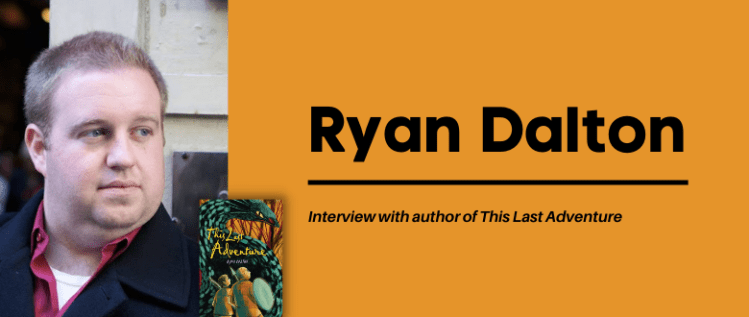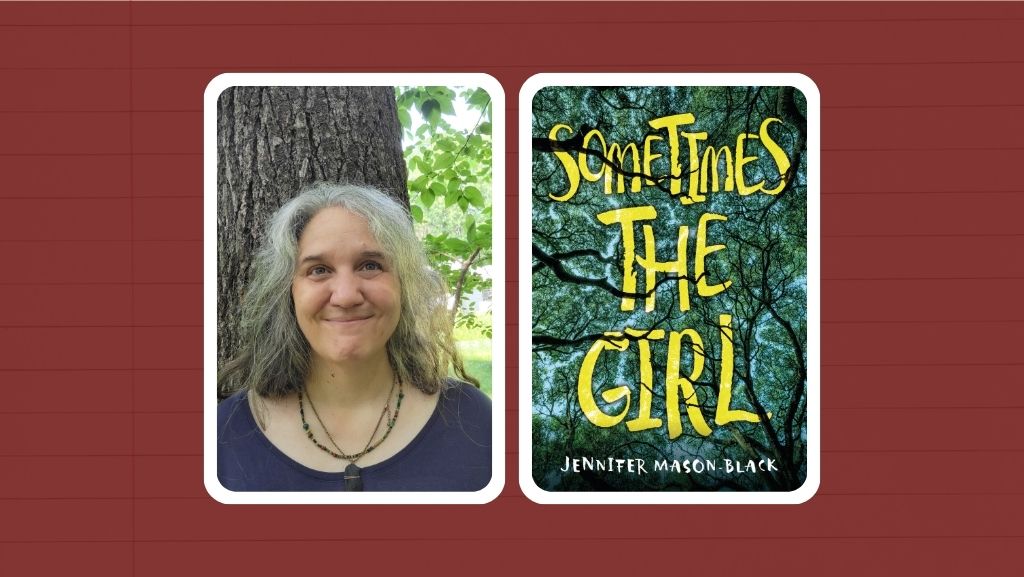This Last Adventure: An Interview with Author Ryan Dalton

When Archie’s beloved grandpa is diagnosed with Alzheimer’s disease, Archie desperately wants to slow the progression of his grandpa’s memory loss. Using Grandpa’s old journal entries as inspiration, Archie creates shared role-playing fantasies with epic quests for them to tackle together. But as Grandpa’s condition gradually worsens, Archie must come to terms with what’s happening to his hero.
This Last Adventure is a compassionate exploration of what it means to be a hero in real life, how to reconcile childhood fantasies with complicated realities, and how to face the unknown with grace. Today author Ryan Dalton shares his experience writing this heartfelt middle-grade novel. Read on to find a book trailer, activity guides, and more!
What was your inspiration for the book?
My mother was the first to suggest it, but I was resistant at first. Her father had been suffering from Alzheimer’s for a while, so our family had experienced many highs and lows and moments of tragedy, but also moments of humor. She knew how much I loved writing deep characters and group dynamics, and suggested that a story about a family dealing with Alzheimer’s was something I could tackle. I debated about it for over a year because I didn’t want to write a book that just all about tragedy. Then, after my grandfather ended up dying, I found an angle on the story that helped me see how I could bring something new to it. When I realized that I could write something like this without making it depressing, and focus instead on hope, that’s when I was all-in and started developing the story for real.
Were you worried that the subject might be too sad for kids?
Definitely. I was worried it would be too sad for me, too. I had no desire to write a book that was just about something terrible happening, where no one could do anything about it except wait for inevitable tragedy. A book takes so long to write and then edit and then finally get onto bookstore shelves, and I didn’t want to spend all that time with my head in a world that was only sad. So, hope became a central theme of the book. How could you cling to hope and still look to the future with optimism while facing an unstoppable disease? Once I realized how I could make that a central part of the story, and of the main character Archie’s personality, that was one of the keys to unlocking the whole thing.
“Sometimes, though, we fight the fear and win. We
-Raymond Reese (Grandpa), This Last Adventure
take the leap and make it to the other side. Sure,
it doesn’t always work out, but feeling defeated is
better than feeling like we never tried.”
Your previous books were YA sci-fi. What was it like to switch to MG contemporary?
It was scary at first. There was no villain to battle, no town to save. All the stakes were personal, and to anyone outside Archie’s family those stakes were invisible. You can’t stand up to Alzheimer’s and punch it in the face. So, it was a big mental shift. I had to adjust my focus on the characters’ internal struggles so that they became the main focus instead of splitting time with an external foe. I had a breakthrough, though, when I realized that I could still write personal and emotional struggles as if they were world-ending challenges. The difference would be how those challenges were met and resolved, but the core emotions–and the way I plotted the story–would actually be very similar. Learning this new (to me) way of writing was very rewarding.
When you look at the finished novel now, is there anything about it that surprises you?
Archie’s family surprises me. I had initially envisioned Archie as a fairly normal kid surrounded by a family of very eccentric characters. That part is still true, and I love how the family just embraces their weirdness. What I didn’t expect, though, was how much these characters would reveal themselves over the course of the story. They ended up being deeper than I had thought would be possible to convey for supporting characters within a middle grade word count. It’s satisfying to read them now and have them feel like people.
Do you have a favorite character in This Last Adventure?
I like mouthy characters. They’re fun to write–especially if they have something clever to say at exactly the wrong moment. I usually limit myself to one per book, and they almost always end up being my favorite character. In this book, that character is Uncle Dan, and I still smile when he cracks jokes at times that he definitely shouldn’t.
Without spoiling any plot, did you have a favorite scene to write?
Archie uses shared fantasies in an attempt to bring back his grandfather Raymond’s memories. The second fantasy sequence, involving a pirate ship and flight suits made of dragon wings, was my favorite fantasy scene to write. My favorite character scene is the very last scene in the book. It has a moment that I had envisioned since day one of developing this story, and finally getting to write it felt amazing.
What’s your favorite part of the writing process?
Probably the soundtrack building stage. It happens early in the process, when I’m still developing concepts and characters and thinking of core scenes that I’ll want to write. Music plays a huge part in my writing process. Building that playlist helps me find the tone and rhythm of the story, and it even helps me create new scenes and characters. It also gives me an excuse to buy new music, which is always fun.
What do you want readers to take away from the experience of reading This Last Adventure?
That even in the darkest of times, you can find hope.
Teaching Resources
There are two free resources available to encourage engagement with young readers. Download the discussion guide and grandparent interview activity below!
Praise for This Last Adventure
“A sensitive, touching story . . . With a family history of the disease, I can’t wait to hand this book to the younglings in my family.”—#1 New York Times Bestselling author Aprilynne Pike
“As empowering and inspiring as it is heart-wrenching, this book will no doubt comfort kids who are dealing with the emotions and struggles that come with watching an aging loved one go through changes, whether from Alzheimer’s or another condition.”—Christina Collins, author of After Zero
“This Last Adventure has something for everyone: family, friendship, a little bit of fantasy, and a whole lot of heart. I loved it.” —Dusti Bowling, author of Insignificant Events in the Life of a Cactus and The Canyon’s Edge
“This book shares an emotional roller coaster of adventure, heartbreak, and affection.” – YA Books Central
Share this video with your students
Watch the Book Trailer!
Can’t get enough of our authors and illustrators? Find more interviews here!



Comments